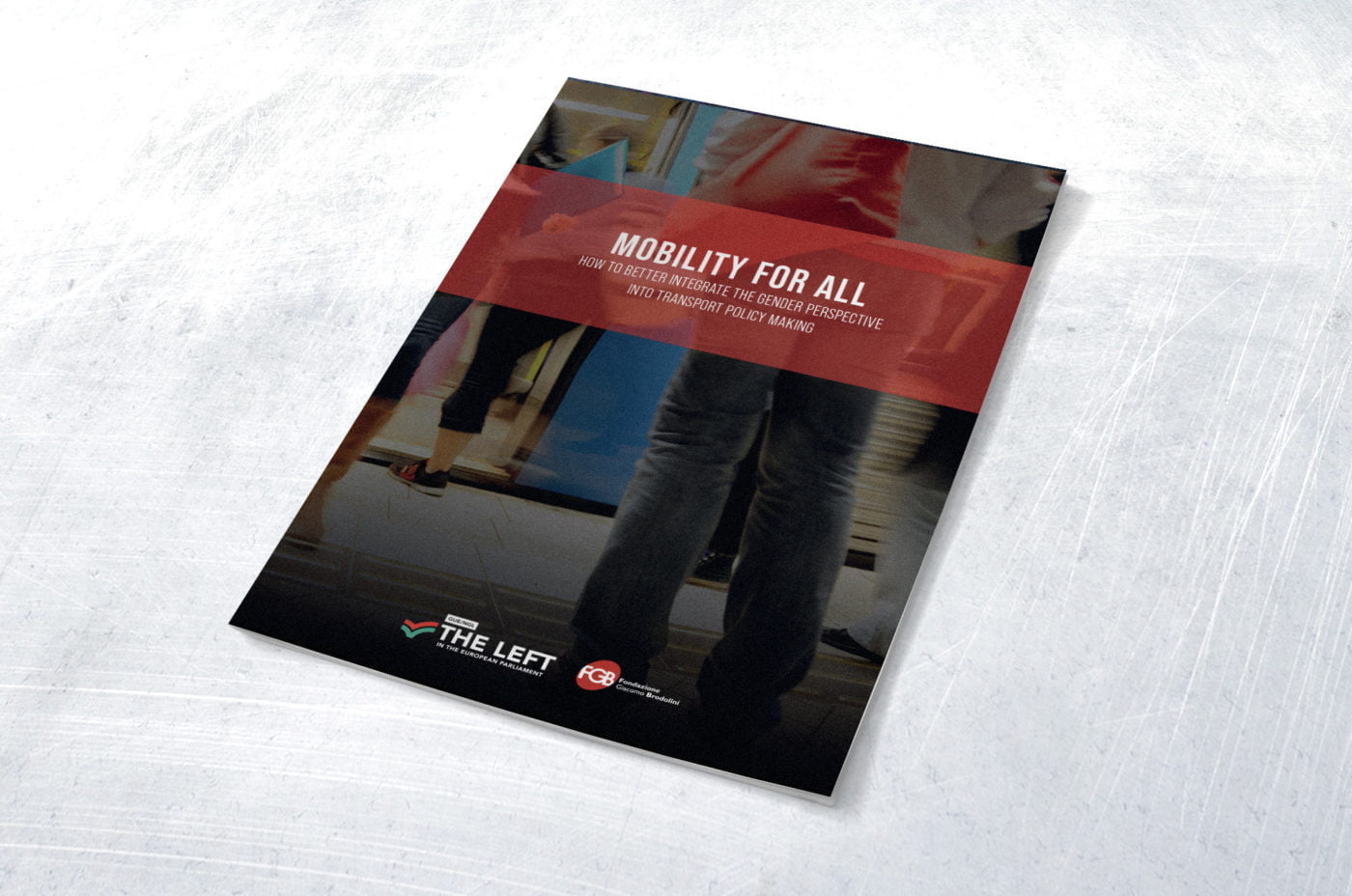POLIS named as pioneer in new publication on gender equal mobility
The Left in the European Parliament has published a study on policies better to integrate the gender perspective into transport policy development, naming POLIS as a leading organisation pioneering change on the ground.
Addressing barriers to gender-equal mobility plays a pivotal role not just for the transport sector itself, but in enabling more equitable access to women’s economic and political participation in society- from education to healthcare to employment.
Violence and harassment remain a leading barrier to using public transport and navigating public space for many women, queer communities and communities of colour, services continue to overlook (or challenge) women’s outsized unpaid caregiving responsibilities, and the transport sector itself remains overwhelmingly male-dominated.
Yet, despite the growing focus on the gendered nature of urban mobility services and decision-making, at local and international levels, change on the ground has been sluggish, if not stagnant.
To guarantee high-quality, accessible and affordable public transport for all, a gender-sensitive approach to transport policy is critical- and this is exactly what the EU Left’s latest research seeks to move towards.
Overcoming gender-based barriers in transport and mobility
The study “Overcoming gender-based barriers in transport and mobility” places gender equity firmly at the core of the future of sustainable transport in Europe. Indeed, given that women represent (over) 50% of transport users in many geographical regions, engaging them will be critical to decarbonisation agendas.
At the launch of the paper, presented at a high-level event at the European Parliament, Isobel Duxfield from POLIS joined Elena Kountoura, MEP, The Left TRAN coordinator, Leila Chaibi, MEP, Catarina Cardoso, Member of the Portuguese Railways Workers’ Committee, Sabine Trier, Head of Policies and Gender Equality for the European Transport Workers Federation, and others, to examine the study’s findings and the cross-sector action required to accelerate progress towards more gender equal mobility.
“Mobility impacts accessing all forms of key economic, educational, health and cultural services, it is at the heart of social justice and social inclusion,” said Roberta Paoletti co-author of the study.
The study, which examines gender disaggregated mobility data, mobility of care, gender-based violence, and the impacts of age and economic background, analyses the fundamental policy changes needed for integrating the gender and anti-discrimination perspective into public transport planning processes.
“We look at gender within a wider lens, looking at the multiple axes of identity which intersect with gender identity,” said Paoletti.
It identifies POLIS’ comprehensive focus on gender equality, the launch of a Just Transition Taskforce, and the peer-to-peer learning approach as instrumental to progress.
“The initiative provides opportunities for the exchange of good practices across the EU. In particular, POLIS managing partners are very actively promoting the sharing of good practices among cities, Member States and leading stakeholders’ organisations in Europe,” states the study.
Indeed, across the last year alone, POLIS has convened a spectrum of webinars, meetings and workshops examining key opportunities for local governments, operators and private sector partners to take action.

"POLIS is incredibly proud to have contributed to this study. POLIS seeks to move conversations around gender equity in mobility beyond the 'vulnerable users' paradigm — which frequently dominates our discussions. Women constitute 50% of transport users, at the same time, 'women' are a diverse group, with intersectional experiences as transport users, workers and decision-makers. As studies like this one from the EU Left continue to maintain momentum towards gender equitable mobility, we need to ensure we understand the varied and complex challenges and opportunities.” said Isobel Duxfield, Membership and communications manager, speaking at the event.
Key to POLIS’ success in mobilising momentum has been the forums the network has created for honest and open conversation between its members- which moves conversations beyond women as ‘vulnerable users’, by recognising their complex, intersectional experiences and roles as key users and decision-makers.
“True transport justice can only be achieved when gender equity is at the forefront of decision-making, and transportation systems are designed to reflect the diverse needs and experiences of all individuals, regardless of gender,” asserts POLIS’ Just Transition Taskforce coordinator, Laura Babío.
Addressing gender equitable employment opportunities
Rectifying the sector’s workforce gender imbalance is key to addressing this. Redressing this imbalance, with a focus on differences across the globe and the range of possible approaches, is what the Sustainable Mobility for All Gender Working Group’s (SUM4All) latest initiative seeks to achieve.
Women account for just 22 per cent of Europe’s transport workforce. This is just an average – figures dip below 15 per cent in the bus sector and below five per cent of pilots. At the same time, women makeup just 15.5 per cent of ministers with transport portfolios across the 27 EU Member States and one in five logistics organisations have no females on their boards.
Just this month, the Inter-Parliamentary Union’s latest overview of Women in Politics places transport second to last in the global rankings of women Cabinet Ministers.
This is a challenge, not just for Europe, but across the globe. This research conducted by POLIS and funded by the FIA Foundation within the SUM4ALL Gender Working Group draws from primary research across multiple transport modes operating in regions around the world, identifying the primary barriers to gender equitable employment, recommendations for action, and in-depth case studies from those pioneering transformative change.
This work- which will be launched in May- has brought together sharp statistics providing an up-to-date overview of the global picture of women’s employment in the transport sector- and their wider economic empowerment, with an insight into women’s, lived experiences working in the industry, what attracted them, what is pushing them away, and what progress they want to see.
Find out more about the SUM4All research and toolkit HERE.
Read the full EU Left study HERE

